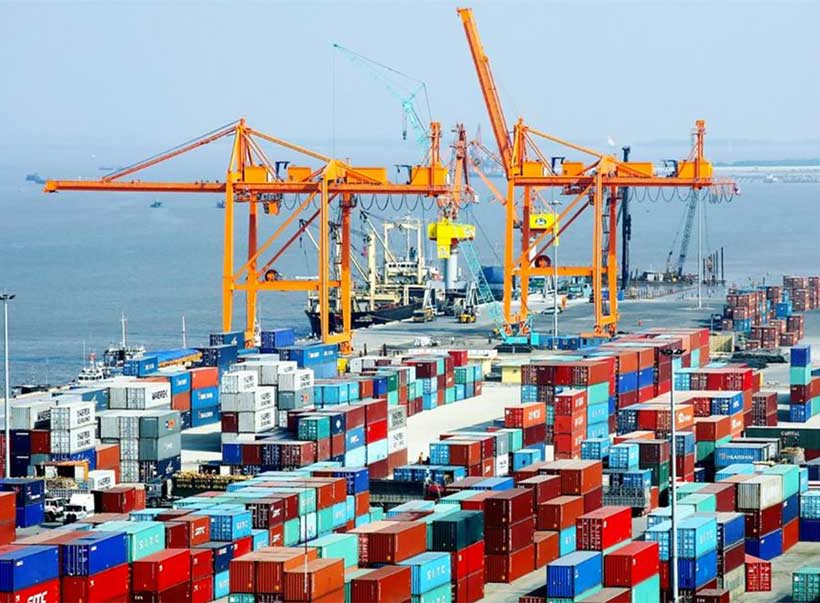
UNCTAD, a global rating firm has firmly predicted that the global rebound is certain, and finally, many countries around the world are recuperating and have shown signs of growth and registered lesser infections. But the agency has warned that the rebound will be highly uneven and volatile depending on the pace of vaccination and control of the pandemic. The global economy will show uneven growth not only country wise but also on the basis of sector, income, and region.
According to the reports, UNCTAD effectively believes that during the financial year 2022, it expects the global economy to grow by 3.6 per cent. Subsequently, this will lead the world income levels to trail off by 3.7 percent which will be effectively below the pre-pandemic level.

Certain warnings about future global economic growth have also been provided. It is to be noted that if policymakers are not cautious about regulations and vaccination pace, the global growth deceleration could be much bigger than expected.
High differences in global growth
It is to be noted that developed or rich countries are seeing an end to their public spending constraints, but on the contrary, the international rules and practices have effectively locked various developing countries into pre-pandemic responses. This is leading to high economic stress amongst various developing countries.
Threats to the developing economies
It is no news that the countries in the South have been effectively hit harder by the global financial crisis. This is true due to low healthcare structure and lower public spending to revamp the economy due to the low funds’ collection due to the pandemic. In fact, the developing countries are under a heavy debt burden, thus they also don’t have much room for maneuvering their way out through robust public spending.
Another detestable attribute that will lead to unequal growth is the lack of monetary autonomy and access to vaccines that the developing economies around the world are facing. The vaccine crunch is significantly holding back many developing economies. This subsequently is leading the developing economies into another “lost decade”.

This inequality emphatically shows that rich have it all. But it is to be also noted that treat to one country around the world is a threat to all. Without any strict and engaging bolder policies that reflect reinvigorated multilateralism, battling with the common economy would be arduous.
The lessons that the pandemic has taught
UNCTAD has reported several solutions based on the problems that are being currently faced. According to the UNCTAD, concerted debt relief should be provided to the debt-laden economies with a few exceptions of even cancellation of debts. This will give a breather to the economies that are reeling under the effects of the economy. Coupled with it a reassessment of fiscal policy will be preferred with greater policy coordination. This would effectively mean that the developed economies can effectively support the developing countries in vaccine deployment and campaigns.

According to the latest trends, according to the report, even if the global economy does not show any significant setbacks, global output will only be able to resume its 2016-19 trend by the financial year 2030. This is majorly due to the fact that even before the pandemic had struck, the income growth trend around the world was quite unsatisfactory.
It is no news that despite a decade of robust monetary spending and injections from leading central banks around the globe, since the 2008 financial crash, inflation targets have been recklessly missed. According to the UNCTAD report, after ages of declining wage share around the world, real wages need to be ramped up in comparison to productivity so that a better balance can be drawn between wages and profits.
Burgeoning food prices
Despite current rather dormant trends on inflation around the world, UNCTAD strongly believes that the rise in food prices can seriously pose a serious threat to various vulnerable populations in the developing continents lie Asia, Africa et. This is mainly due to the fact that such continents have been battered enough due to their weak healthcare infrastructure. With the financial standing of many already crippled due to vast healthcare expenditure, burgeoning food prices can be the last nail in the coffin.
Majorly, the international trade in goods and services around the world has emphatically recovered. This comes after the drop of 5.6 per cent that was witnessed in the financial year 2020. According to reports, the global trade had rebounded in the latter part of 2020. This was as strong as the fall that was witnessed in the initial year.
With growing inequality around the globe, the pandemic has suitably provided a chance to rethink the core principles of economic governance so as deal with the future global crisis.
With the US effectively dealing with the crisis at home with immense spending financed by progressive taxes, it is about time that it can be adopted at an international level. Multilateralism can be adopted with the United States support of a new special drawing rights (SDR) allocation. This can also be adopted through global minimum corporate taxation and an effective and emphatic waiver of vaccine-related intellectual property rights.
This can certainly lead to the unburdening of the world economy, especially for the underdeveloped countries that are reeling under the effects of the pandemic. UNCTAD also suggests that multilateralism can be achieved even though much stronger backing from other advanced economies.




